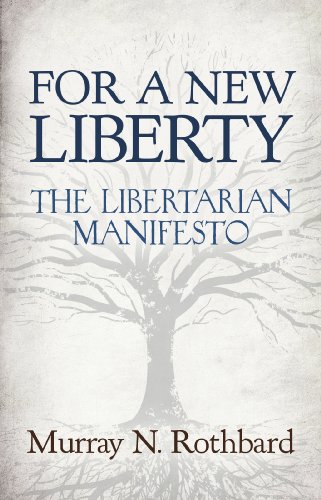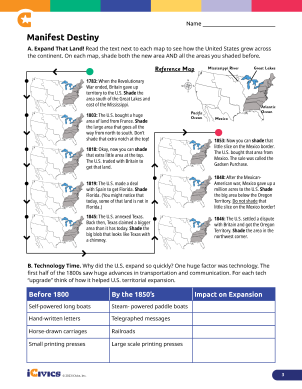For a New Liberty the Libertarian Manifesto
“For a New Liberty: The Libertarian Manifesto” is a book by Murray Rothbard that outlines the principles of libertarianism. It presents a strong case for individual liberty, free markets, and a minimal state.
In “For a New Liberty: The Libertarian Manifesto,” Rothbard argues for a society based on voluntary interactions, private property, and non-aggression. The book challenges the traditional role of government and advocates for a society where individuals are free to pursue their own interests without interference.
Rothbard’s work continues to be influential in libertarian circles and offers a thought-provoking perspective on the role of government in society.

Credit: www.abebooks.com
History Of Libertarianism
Origins Of Libertarian Thought
Libertarianism traces its roots back to the Age of Enlightenment, emphasizing individual liberty and limited government intervention.
Key Figures In Libertarianism
Notable figures in libertarian thought include Murray Rothbard, Ayn Rand, and Friedrich Hayek, who championed free markets and personal autonomy.
Core Principles
Core Principles:
For a New Liberty: The Libertarian Manifesto by Murray N. Rothbard is a book that outlines the principles of libertarianism. These principles are based on three core ideas: individual freedom, limited government, and free market economics.
Individual Freedom
Individual freedom is the cornerstone of libertarianism. Libertarians believe that individuals should have the right to live their lives as they see fit, as long as they do not harm others. This means that individuals should have the freedom to make their own choices when it comes to their bodies, property, and finances.
Libertarians reject the idea that the government should be able to tell people how to live their lives. They believe that the government should only exist to protect individual rights and enforce contracts.
Limited Government
Another core principle of libertarianism is limited government. Libertarians believe that the government should be limited to protecting individual rights and enforcing contracts. They believe that the government should not be involved in other areas, such as education, healthcare, or social welfare.
Libertarians argue that when the government gets involved in these areas, it often creates more problems than it solves. They believe that individuals and private organizations are better equipped to handle these issues.
Free Market Economics
The third core principle of libertarianism is free market economics. Libertarians believe that the free market is the best way to allocate resources and create wealth. They argue that when the government interferes in the economy, it often leads to inefficiencies and unintended consequences.
Libertarians believe that individuals should be free to trade with one another without government interference. They also believe that competition in the marketplace is essential for innovation and progress.
Overall, For a New Liberty: The Libertarian Manifesto outlines a set of principles that are based on individual freedom, limited government, and free market economics. These principles are at the heart of libertarianism and have influenced political thought for decades.
Critiques Of Libertarianism
When considering the ideology of libertarianism, it is important to acknowledge the various critiques that have been raised about this political philosophy. While libertarianism advocates for limited government intervention and a free market economy, it is not without its detractors. In this section, we will explore some of the key criticisms of libertarianism, including challenges to limited government and the ideals of the free market.
Criticism Of Limited Government
One of the primary critiques of libertarianism is the notion of limited government. Critics argue that a minimal state may not be equipped to address complex societal issues such as healthcare, education, and environmental protection. They contend that without government intervention, these essential services may be underfunded or inaccessible to certain segments of the population.
Furthermore, opponents of limited government assert that without regulatory oversight, industries may exploit workers, consumers, and the environment. They argue that a laissez-faire approach could lead to unchecked corporate power and the erosion of worker rights and environmental protections.
Challenges To Free Market Ideals
Another area of criticism centers around the free market ideals espoused by libertarianism. Critics argue that an unregulated market can lead to monopolies, income inequality, and economic instability. They contend that without government intervention, there is a risk of market manipulation, predatory practices, and the concentration of wealth in the hands of a few.
Moreover, opponents of free market ideals assert that unregulated capitalism may neglect social welfare, leaving vulnerable populations without essential support. They argue that a purely market-driven approach may prioritize profit over human well-being, leading to social injustices and disparities.

Credit: en.wikipedia.org
Impact Of ‘for A New Liberty’
For a New Liberty, the Libertarian Manifesto, has had a significant impact on political thought, sparking discussions and controversies in the realm of libertarian ideology. The book, written by Murray Rothbard, has left a lasting imprint on the political landscape, influencing the way individuals perceive governance, liberty, and individual rights.
Influence On Political Thought
Rothbard’s ‘For a New Liberty’ has influenced political thought by promoting the principles of individual liberty, free markets, and non-aggression. It has encouraged a reevaluation of the role of government in society, advocating for limited intervention and a focus on voluntary interactions.
Reception And Controversies
The reception of ‘For a New Liberty’ has been mixed, with supporters praising its advocacy for personal freedom, while critics have raised concerns about the practicality and feasibility of its proposals. The book’s controversial nature has sparked debates and discussions within political circles, contributing to the ongoing discourse on libertarianism and its place in modern society.
Current Relevance
For a New Liberty: The Libertarian Manifesto, written by Murray Rothbard, continues to hold significant relevance in today’s political landscape. Despite being published in 1973, the ideas presented in the manifesto remain pertinent to the contemporary socio-political climate. This enduring relevance is evident in the ongoing debates on libertarian policies and their application in modern politics.
Application In Modern Politics
The principles and concepts espoused in For a New Liberty continue to be influential in modern political discourse. The libertarian philosophy emphasizes individual liberty, limited government intervention, and free-market principles. These ideas resonate with contemporary debates on issues such as economic regulation, personal freedoms, and government overreach.
Debates On Libertarian Policies
The manifesto’s perspectives on libertarian policies have sparked intense debates among policymakers and citizens alike. Key topics of contention include the role of government in economic affairs, the protection of civil liberties, and the balance between individual autonomy and collective responsibility. The ongoing discussions surrounding these issues underscore the enduring relevance of For a New Liberty in shaping contemporary political thought.

Credit: www.amazon.com
Future Of Libertarianism
The future of libertarianism holds great promise as the ideas and principles espoused in “For a New Liberty: The Libertarian Manifesto” continue to evolve and gain traction in the modern world. As society grapples with complex social, political, and economic challenges, the libertarian philosophy offers a compelling vision for individual freedom, limited government intervention, and voluntary cooperation.
Evolution Of Libertarian Ideas
The evolution of libertarian ideas has been marked by a steadfast commitment to personal liberty, free markets, and non-aggression. From the classical liberalism of the 19th century to the modern libertarian movement, the principles of self-ownership and voluntary exchange have remained central to the ideology. As technology continues to advance and global communication facilitates the exchange of ideas, the libertarian philosophy is poised to adapt and thrive in the ever-changing landscape of political thought.
Prospects For Libertarianism
The prospects for libertarianism are buoyed by a growing disillusionment with overbearing government policies and regulations. As individuals seek greater autonomy and self-determination, the libertarian emphasis on individual rights and limited state authority resonates with a diverse range of people. Moreover, the potential for blockchain technology, decentralized finance, and voluntary associations presents new opportunities for libertarian ideals to manifest in practical, real-world solutions.
Conclusion
In essence, “For a New Liberty: The Libertarian Manifesto” offers a profound perspective on individual freedom and limited government. Emphasizing voluntary cooperation, it advocates for a society based on personal responsibility and non-aggression. This timeless manifesto continues to inspire and provoke critical thinking on the principles of liberty.






